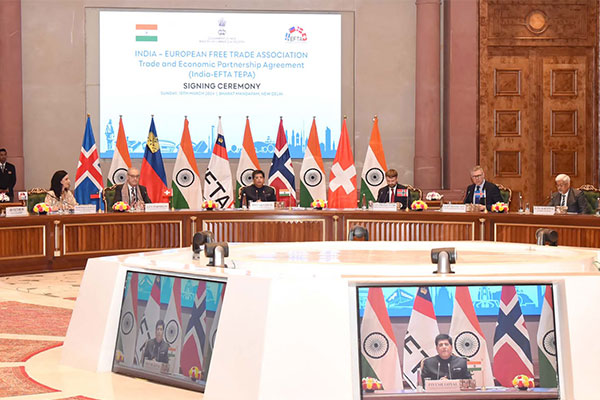India and the four European Free Trade Alliance (EFTA) countries – Switzerland, Norway, Iceland and Liechtenstein – have concluded more than 15 years of long negotiations and eventually signed a historic free trade agreement worth $100 billion.

Under the agreement, India will abolish most of the tariffs on EFTA countries’ industrial goods, which will bring more choice of high-quality goods from these countries to Indian consumers, while also reducing the costs of relevant industries.In exchange, the EFTA countries will invest $100 billion in India over the next 15 years in investment areas including medicine, machinery and manufacturing, which will not only bring capital to India, but will also facilitate technology transfer and knowledge sharing.
India’s Trade Minister, Piyush Goyal, said the deal opens new doors to the Indian market, a huge market with 1.4 billion people and a rapidly growing economy, adding that the deal is expected to boost exports, stimulate investment and create jobs, laying a solid foundation for common growth and prosperity for both countries.
India is the fifth largest trade partner of the EFTA countries, with bilateral trade totaling $25 billion in 2023.
In addition, India’s free trade negotiations with the UK are also moving forward and a deal is expected to be reached soon. India’s Prime Minister Narendra Modi is working to the ambitious goal of $1 trillion in annual exports by 2030, and these free trade agreements will undoubtedly provide important support for achieving this goal.
The Swiss government welcomed the signing of the agreement, stating in a statement that India would immediately or gradually lift the high tariffs on 95.3% of Switzerland’s industrial products (excluding gold).
The signing of the free trade agreement is an important step in India’s foreign trade strategy, demonstrating the country’s determination to actively participate in the global trade system, expand opening up and drive economic globalization.


 Follow customer service WeChat
Follow customer service WeChat